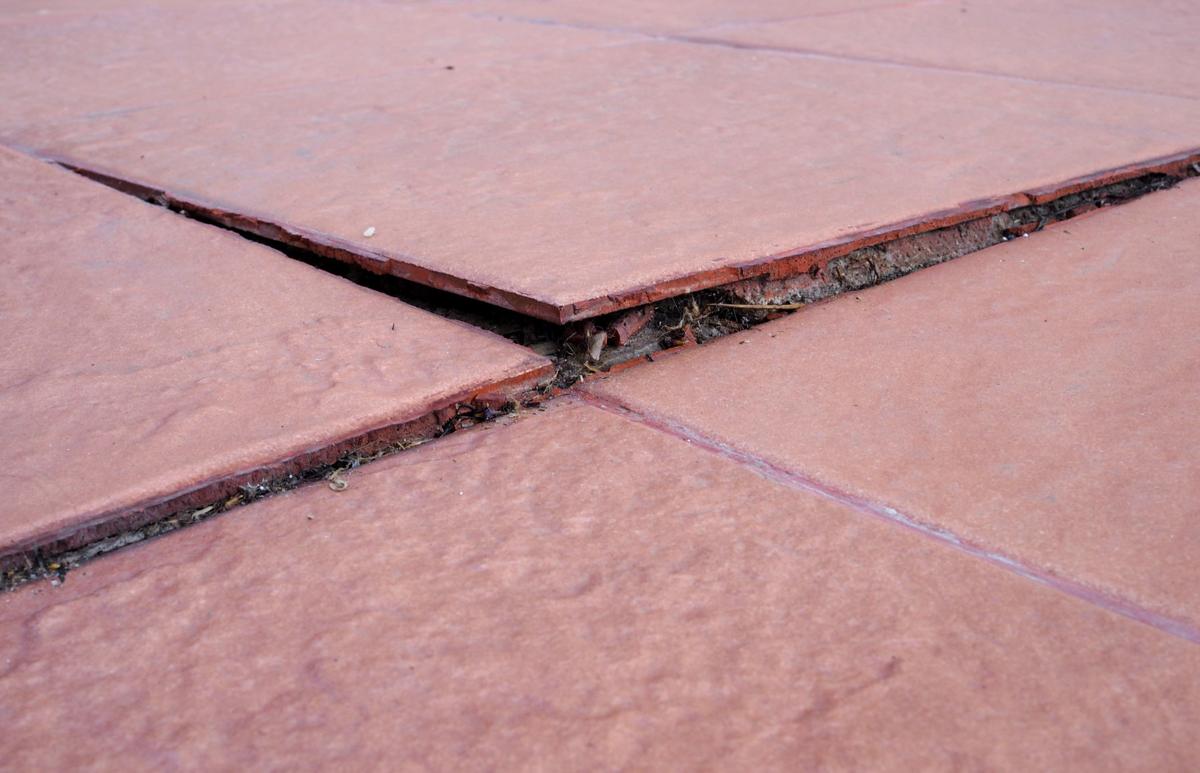QUESTION: I had tile installed in my home a few years ago and now it has started making popping sounds when we walk on it. In some places the grout is flaking off the top of the lines between tiles. What is happening and how do I get it fixed?
ANSWER: The problems you mention indicate the tile may be delaminating from the slab, probably due to moisture issues. There could be a pinhole leak in the water lines, for example. Or there could be excessive watering of landscaping close to the house. Or too much water could have been used in the thinset or the grout when the tile was laid.
For a preliminary check on possible moisture issues, you can tape a sheet of plastic wrap over a couple areas of tile, and leave it there for a while. If you see moisture building up on the plastic, you know that water infiltration may be involved. If there’s a leak, you may ultimately need a plumber’s help. There are also contractors that do leak location.
Ultimately, you may want to redo the tile flooring, but don’t do that until you determine what the problem is and get it fixed. If someone concludes the tiles were improperly laid, you can approach the original tile contractor and the Registrar of Contractors about repairing the problem if the work was done less than two years ago. If it was done a long time ago, however, you would have a problem referring your case to the registrar.
Q: I just bought a new home and I want to put in a water softener. But when the house was built, no one put a loop in the plumbing for attaching the softener. Do I really have to have a loop? And if I want to put a gas line in that runs from the house to the barbecue in the backyard, do I have to bury it underground?
A: Yes, you’ll need a loop, but water softener companies can install them, although you’ll have to pay extra for that. And yes, the gas line must be buried, and all gas line work has to have a permit and be done by a licensed plumber.
Q: We recently bought a home for my mother-in-law overlooking a ravine. In fact, her whole backyard is a wooden deck, about 15 by 50 feet, built in 2004 above part of the ravine. The deck has water and mold damage. It sits on TGI wooden joists and is covered with sand, then with pavers and grout. But my mother-in-law loves the deck and wants it rebuilt. Is it a good idea to cover it with pavers on top of the wood again?
A: Actually, they have come out recently with permeable, segmented pavers, designed just for use on decks. That might work for your deck. But be sure to hire a licensed contractor who can give you good advice and tell you if wooden TGIs and pavers are good ideas. A licensed contractor can ensure that the deck structure and its components are structurally designed for the intended load. We’d suggest using redwood to rebuild the deck; it will last longer than other types of wood. You will need to oil the redwood three or four times a year. Even then, decks in Arizona often do not last very long.





